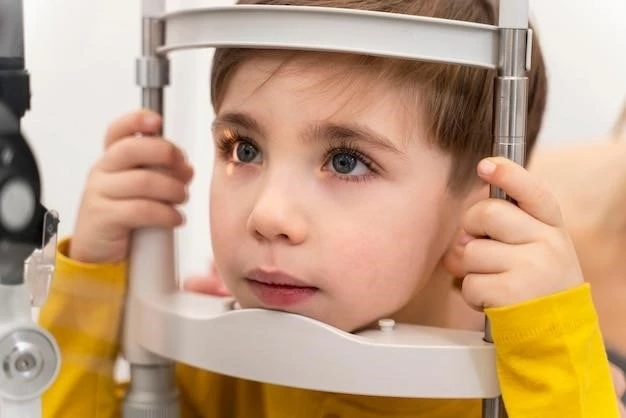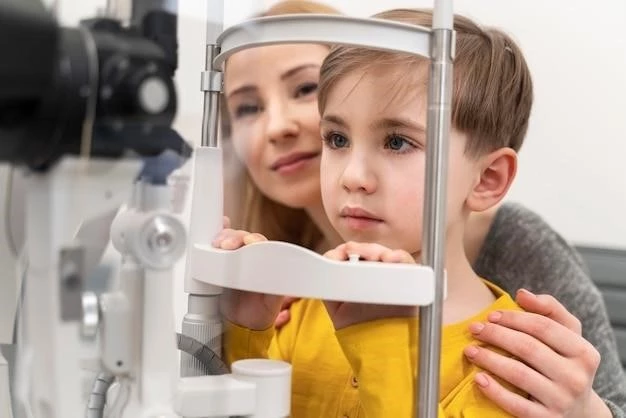The Congenital Muscular Dystrophy-Infantile Cataract-Hypogonadism Syndrome is a rare genetic disorder characterized by congenital muscular dystrophy, infantile cataract, and hypogonadism.
Description and Symptoms
The Congenital Muscular Dystrophy-Infantile Cataract-Hypogonadism Syndrome is a genetic disorder characterized by congenital muscular dystrophy, infantile cataract, and hypogonadism. Symptoms may include muscle weakness, vision problems, and underdeveloped sex organs.
Rare Genetic Disorder
The Congenital Muscular Dystrophy-Infantile Cataract-Hypogonadism Syndrome is an extremely rare genetic disorder characterized by a combination of congenital muscular dystrophy, infantile cataract, and hypogonadism. This syndrome is considered very uncommon and requires specialized medical attention due to its rarity.
Research and Studies on the Syndrome
Specialists researching Congenital Muscular Dystrophy-Infantile Cataract-Hypogonadism Syndrome have received grants, run clinical trials, and are experts in the field due to their involvement in related organizations.
Specialists and Organizations Involved
Experts specializing in Congenital Muscular Dystrophy-Infantile Cataract-Hypogonadism Syndrome have conducted research, received grants, and contributed to clinical trials and related organizations, enhancing their knowledge of this rare genetic disorder.
Clinical Trials and Grants
Specialists investigating Congenital Muscular Dystrophy-Infantile Cataract-Hypogonadism Syndrome have been actively involved in conducting clinical trials and securing grants to further explore this rare genetic disorder, contributing valuable insights to the medical community.

Diagnosis and Specialist Referrals
Diagnostic teams for Congenital Muscular Dystrophy-Infantile Cataract-Hypogonadism Syndrome consist of genetics and neurology specialists for accurate assessments and appropriate referrals.
Diagnostic Teams and Referral Process
Diagnostic teams for Congenital Muscular Dystrophy-Infantile Cataract-Hypogonadism Syndrome comprise genetics and neurology specialists who conduct comprehensive assessments and facilitate appropriate referrals for effective management of this complex genetic disorder.
Genetic and Neurological Assessments
Genetic and neurological assessments play a crucial role in diagnosing Congenital Muscular Dystrophy-Infantile Cataract-Hypogonadism Syndrome. These assessments aid in understanding the genetic inheritance and neurological implications of this rare disorder.
Support Groups and Communities
Resources and support groups are available for individuals and families affected by Congenital Muscular Dystrophy-Infantile Cataract-Hypogonadism Syndrome, offering assistance and information to navigate this rare genetic disorder.
Resources for Patients and Families
Support groups and resources are available to assist individuals and families affected by Congenital Muscular Dystrophy-Infantile Cataract-Hypogonadism Syndrome, providing valuable aid, guidance, and a sense of community.
Financial Aid and Assistance
Individuals and families impacted by Congenital Muscular Dystrophy-Infantile Cataract-Hypogonadism Syndrome can access financial aid and support services to help manage the challenges associated with this rare genetic disorder.
Treatment and Management Approaches
Therapeutic strategies for Congenital Muscular Dystrophy-Infantile Cataract-Hypogonadism Syndrome focus on addressing symptoms and managing the complexities of this rare genetic disorder.
Therapeutic Strategies
Therapeutic strategies for Congenital Muscular Dystrophy-Infantile Cataract-Hypogonadism Syndrome aim to manage symptoms and enhance the quality of life for individuals affected by this rare genetic disorder.
Current Drug Development
Research and development efforts are ongoing to explore new drug therapies for Congenital Muscular Dystrophy-Infantile Cataract-Hypogonadism Syndrome, aiming to improve treatment options and quality of life for individuals affected by this rare genetic disorder.
Understanding the Genetic Inheritance
Individuals affected by Congenital Muscular Dystrophy-Infantile Cataract-Hypogonadism Syndrome inherit it through autosomal recessive transmission, leading to a combination of muscular dystrophy, infantile cataract, and hypogonadism.
Autosomal Recessive Transmission
Congenital Muscular Dystrophy-Infantile Cataract-Hypogonadism Syndrome is inherited through autosomal recessive transmission, reflecting the genetic complexities underlying this rare disorder.
Associated Syndromes and Conditions
Congenital Muscular Dystrophy-Infantile Cataract-Hypogonadism Syndrome may present associated conditions such as Klinefelter syndrome in males and agenesis of the ovaries in females, adding complexity to the clinical manifestations of this rare genetic disorder.

Case Studies and Clinical Findings
Reported cases of Congenital Muscular Dystrophy-Infantile Cataract-Hypogonadism Syndrome highlight unique clinical features and variations, shedding light on the epidemiology and characteristics of this rare genetic disorder.
Reported Cases and Epidemiology
Cases of Congenital Muscular Dystrophy-Infantile Cataract-Hypogonadism Syndrome have been documented, providing insights into the epidemiology and diverse clinical presentations of this rare genetic disorder.
Unique Features and Variants
Case studies on Congenital Muscular Dystrophy-Infantile Cataract-Hypogonadism Syndrome reveal distinctive features and variations, offering insights into the diverse manifestations and variants of this rare genetic disorder.
Future Prospects and Research Directions
Specialists actively involved in Congenital Muscular Dystrophy-Infantile Cataract-Hypogonadism Syndrome research are paving the way for emerging treatment trends and collaborative awareness campaigns to advance the understanding and management of this rare disorder.
Emerging Trends in Treatment
Research efforts for Congenital Muscular Dystrophy-Infantile Cataract-Hypogonadism Syndrome focus on developing innovative treatment approaches to address the unique challenges posed by this rare genetic disorder, aiming to enhance patient outcomes and quality of life.
Collaborative Efforts and Awareness Campaigns
Significant collaborative efforts and awareness campaigns in Congenital Muscular Dystrophy-Infantile Cataract-Hypogonadism Syndrome aim to increase knowledge, support research, and promote early detection and management of this rare genetic disorder.
